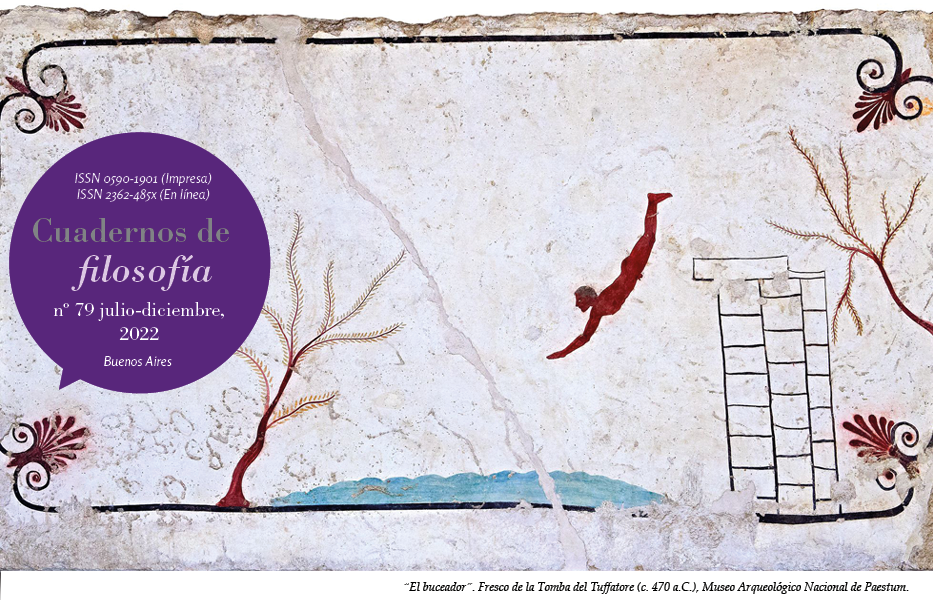Contemplation, virtue and happiness: the soul’s quest according to Plotinus
Abstract
If we wanted to group around questions some of the main nuclei of Plotinus' philosophy, those questions could be the following: "who are we?", "where do we come from?" and "where are we going?". Throughout the Enneads the Lycopolitan uses locative and temporal metaphors to account for the unity underlying all souls and the search that the human soul must undertake to return to that unity. Our philosopher points out that unity is neither "fragmented" nor "trimmed" (like that of a wax that can be divided into several pieces or that of a wine that can be poured into different glasses) but is indivisible (améristos) and also diversified, comparable to that of the different theorems of a science, which account each in its own way for the totality of the discipline. At the same time it also makes a differentiation between capacities (dýnamis) of the soul that refer to the body and another that is separated from the corporeal and exercises the contemplation (noesis) of Intelligence. In the particular case of the human being it would happen that he has no record of the contemplation that his own "higher soul" carries out, so he needs to replenish it. Therein lies the purpose of philosophy, which is clothed with a theoretical dimension (dialectics) and a practice (the cultivation of the lower and higher virtues to the extent that it is perfected in dialectics). The sage would then be the one who has managed to adapt his thoughts and actions to his noetic activity, has achieved happiness and is in a position to experience mystical union with the One. We can then point to contemplation, virtue, and happiness as three important motivations behind Plotinus' thought.Downloads
Los autores/as que publiquen en esta revista aceptan las siguientes condiciones:
Los/as autores/as [traductores/as] conservan los derechos de autor/a y ceden a la revista el derecho de la primera publicación, con el trabajo registrado con Licencia Creative Commons Atribución-NoComercial-CompartirIgual 4.0 Internacional, que permite a terceros utilizar lo publicado siempre que mencionen la autoría del trabajo y a la primera publicación en esta revista.
Los/as autores/as pueden realizar otros acuerdos contractuales independientes y adicionales para la distribución no exclusiva de la versión del artículo publicado en esta revista (p. ej., incluirlo en un repositorio institucional o publicarlo en un libro) siempre que indiquen claramente que el trabajo se publicó por primera vez en esta revista.
Se permite y recomienda a los/as autores/as a publicar su trabajo en Internet (por ejemplo en páginas institucionales o personales).
Políticas de detección de plagio
La colaboración de los y las editores/as, autores/as y evaluadores/as de esta revista y la guía de ética de los procesos editoriales se rige por los Principios de transparencia y buena práctica en publicaciones académicas del Committee on Publication Ethics (COPE) disponible aquí.
Todos los artículos enviados a esta publicación serán supervisados mediante una búsqueda online.







